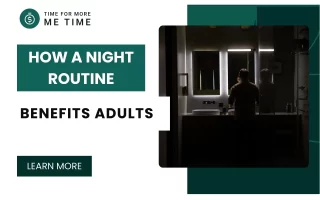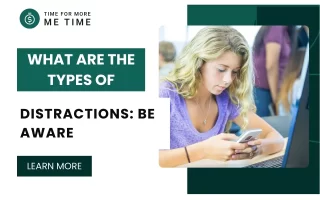While getting distracted from time to time is healthy, having to deal with them all the time can easily wreak havoc in your life. That’s why you may need to learn how to minimize distractions, whether you’re a student or an entrepreneur.
We know how difficult it is to focus on a study session if we let distractions win. As students, you need to know how to minimize distractions, especially if you want to ace your exams.
As an entrepreneur chasing ambitious goals or simply someone who wants to be more present and productive in daily life, learning how to minimize distractions is a game-changer.
The question now is how? Well, here are some actionable tips on how to minimize distractions
1. Silence Your Phone
An individual’s attention span has recently been reduced to about 47 seconds from 2.5 minutes in 2004. One of the many reasons for this is digital distractions.
However, transforming business these days requires the use of digital innovations. If we want to avoid interruptions caused by our phones, the remedy is to silence them.
If you don’t have any business using your phone, set it to airplane mode or silent (with no vibration) for at least one hour. You can also opt to turn off all the notifications from all of your apps except for your main communication app.
Also, this is especially important if you have employed delegation strategies. The people who received your tasks should know that they would have a strict policy on how you handle your phone communications.
2. Schedule Your Email Checks
To avoid getting into a time sink when browsing your emails, only check it at a set time or a time block—like the first hour in the morning and an hour before evening every day. This is one of the best techniques in time management skills that can help avoid distractions.
3. Prioritize and Plan

If you want to make it easier to know which time to block, clearly define your priorities for the day. Break down large tasks into smaller tasks. Doing so makes the tasks more manageable, which can help avoid internal distractions—feeling intimidated or overwhelmed.
And I tell you, part of your college planning is to have atleast a to-do list on the things you’re going to do every week. Will it be attending a freshman orientation or college reading skills enhancement? Whatever they are, list them down!
That way, you know how you’re spending your time.
4. Employ Pomodoro Technique
Another technique in time management is the Pomodoro. Want to have a laser-like focus when you set smaller goals?
Employ the Pomodoro method; set a timer for 25 minutes and focus solely on one task. After 25 minutes, take a five-minute break. Repeat this cycle four times, and then take a more extended break of 15–20 minutes.
Using a timer can reinforce these boundaries and condition your focus over time.
5. Mindfulness And Meditation

Another way to improve concentration and decrease those pesky distractions is to practice meditation or mindfulness.
Mindfulness is about bringing one’s attention to the present moment without judgment. Engaging in short mindfulness exercises or meditation can reduce stress, enhance focus, and increase one’s self-awareness of distracting habits.
The best about this? Mindfulness can lead us to become more productive since we can reduce our stress, helping us focus and collaborate more with our colleagues.
6. Stay Active and Exercise Regularly
Whether you’re a college student or a work-from-home entrepreneur, you should also prioritize physical activity. Engage in at least 30 minutes of moderate-intensity exercise most days of the week. And when you wake up, take on the technique of utilizing the power hour productivity boost.
Doing so can improve blood flow to the brain, boost cognitive flexibility, and enhance focus, making it an essential habit if you want to learn how to minimize distractions.
I know it seems difficult since college prep or making money is more important and time-consuming. However, studies show that even small amounts of physical activity can help with cognitive and affective aspects of work outcomes.
Still don’t have time? Experts suggest allocating at least 15-20 minutes of your day—only a small amount from your time studying or working. What’s important is to build a habit. Just remember the long-term benefits of regular physical activity.
7. Fuel Your Body With Brain-Boosting Foods

Avoid processed foods, excessive sugar, and unhealthy fats, as these can lead to energy crashes and hinder concentration. Yes, you read that right.
Instead, eat foods containing Omega-3 fatty acids. You can find them in foods like salmon, walnuts, and flaxseeds, which can improve cognitive function and memory, which can ultimately help you avoid potential distractions.
8. Take Breaks
Did you know that taking a break is helpful, so why not utilize the power of strategic pausing?
Although we want to learn how to avoid distractions, sometimes they serve a purpose. Distractions can be healthy because they push you to take breaks, which can help you stay focused and productive.
But remember to take purposeful breaks. This means giving yourself time to breathe and your mind time to rest so you can fully refocus and reenergize.
Does scrolling social media count? Unfortunately, it’s not considered a purposeful break. We’re talking about having a 15-20 minute nap, taking a walk, showering, or deep breathing.
9. Employ The Two-Minute Rule

This productivity hack, popularized by David Allen in his book “Getting Things Done,” is deceptively simple but surprisingly effective. That’s why I consider it as one of the most basic ways to learn how to minimize distractions—no little things popping when we’re doing bigger tasks.
If a task takes less than two minutes to complete, do it right away. This could be responding to a quick email, filing away a document, or sending a brief text message. By tackling these small tasks immediately, you prevent them from piling up and becoming overwhelming later.
10. Do One Thing At A Time
We all love to brag about how great we are at multitasking, but research has proven it to be a myth. We can’t do things at the same time—unless you count involuntary movements. What we actually do is switch tasks, which makes us feel we’re doing a lot more than we are.
Unfortunately, this “multitasking” is inefficient. Do note that it’s challenging to achieve true focus if you’re always switching gears to answer texts, check messages, or run to a last-minute meeting that your boss “needed you for.”
Aside from making things take longer to finish, multitasking can make you susceptible to losing your focus and getting distracted.
So, aim for single-tasking by fully concentrating on one item before moving on to another.
Plus, committing to a single task often creates the opportunity to achieve flow. This highly productive state occurs when you’re deeply absorbed in what you’re working on, and hours can melt away without you realizing how much work you are getting done.
It’s like achieving a sense of energized focus.
11. Make Use Of Efficiency Apps

To become more efficient, you can use Todoist, Trello, and Asana. These apps are tools designed for productivity, especially in a work or school environment.
Of course, you can use them to aid you in your personal life as well.
These apps primarily allow you to plan your day, track your progress, and hit deadlines and goals. These productivity tools can centralize all your plans and thoughts, reducing the amount of time you need to spend mentally juggling and preventing you from being prone to distractions.
There are also alternatives like Freedom or Serene. Their primary use is to let you focus. They do it by blocking those websites we tend to mindlessly browse when we are trying to work or study.
Using them is as easy as setting a timer. And until that timer stops, those distracting apps or websites will be inaccessible to you, which can increase your chance of actually finishing the important tasks of your day and getting rid of distractions.
12. Mastering The 18-Day Habit

Sticking to a schedule can let you condition your mind and body to finish tasks on time and eliminate bad and distractive habits. The question now is how long do you need to stick to that schedule for it to “stick?”
The answer to that question is 18 days. According to studies, it takes at least 18 days to create a solid habit. That means your goal should be to stick with the methods and tactics for at least three weeks.
Remember that you need to be consistent with your tasks and timings, even when your brain screams to return to the comfy couch for Netflix-binging sessions. Always remember that putting off the pain of working or studying won’t do you any good. It can’t pay the bills or result in good grades.
FAQs
What if my job requires constant online access?
It’s understandable that in certain professions, completely disconnecting from digital devices might not be feasible. Instead of aiming to go completely off the grid, try setting boundaries within your online activities.
For example, if certain websites or social media platforms tend to suck you in, use website blockers or browser extensions to restrict access during your designated work hours.
Remember: It’s not about eliminating technology altogether; it’s about using it intentionally and purposefully.
I’ve tried everything, and I still can’t focus; what now?
The tips and strategies I mentioned are generally effective. Unfortunately, the difference will be how you execute them or your specific circumstances.
If you’re still grappling with distractions after giving these tips a go, it might be helpful to explore other approaches that align better with your personal work style and preferences.
Note that this isn’t the bible of becoming efficient and removing distractions. There are many resources out there that may offer different advice. So, if these tips don’t work for you, press on and learn more about other things you can do!
Conclusion
Learning how to minimize distractions is essential for maintaining productivity. Start by knowing what these distractions are: internal, physical, and digital distractions—all of which can severely hinder efficiency. By recognizing these barriers and employing strategies to mitigate them, you can enhance your focus.
By using the tips above, I know you can save time and finish your tasks promptly because you’re focused. However, if one doesn’t apply to you, try the others until you find what works best for you. What matters is to try, practice, and form a habit.
I know you can also do it! Remember, time is the most valuable asset, so we should learn how to use it wisely. Although we may not eliminate distractions in a snap, let’s try to reduce distractions one at a time.






